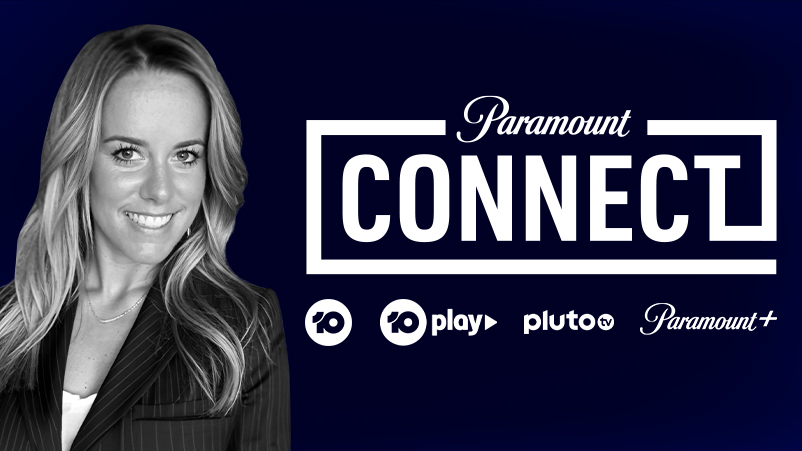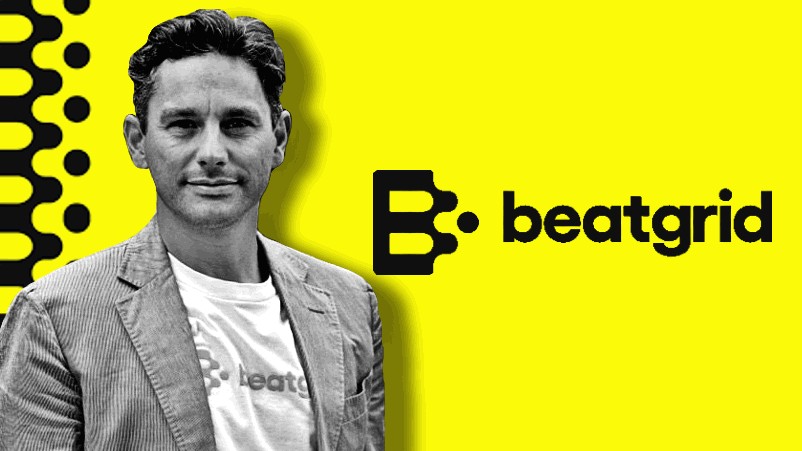The Marketing Academy 2022 intake: IAG's Anna Jackson, The Hallway's Chris Murphy and OMD's Philippa Moig on killing ego, never getting emotional in commercial negotiations – and taking responsibility for everything
Six months into The Marketing Academy's 2022 Scholarship programme, Mi3 asked the class of '22 for their take on the key lessons to date. Anna Jackson, Director, Brand Strategy & Creative Execution, IAG; Chris Murphy, General Manager at The Hallway Performance Digital and Philippa Moig, Head of NSW Government at OMD, on deep listening, bridging capability gaps and why "the conditions are always perfect" to make your move.

Left to right: OMD's Philippa Moig, The Hallway's Chris Murphy and IAG's Anna Jackson.
Anna Jackson, Director, Brand Strategy & Creative Execution, IAG
TMA so far: What’s the single most valuable insight gleaned?
When we’re hacked, when we face the worst of the worst, we have a choice to upgrade or downgrade.
It takes time. It takes perspective. But the choice is always there. And when we recognise that, we’re no longer victims of the shite life can throw our way. In fact, the shite can ultimately be seen a gift – one that gives us greater empathy, resilience, and insight.
How to nail the TMAs entry requirements?
I won’t lie, it’s a tough process. But when you meet your cohort, it all makes sense. The thorough curation is worth it for everyone involved.
My top three ingredients for getting in:
- Authenticity. The judges have seen and heard it all. Reveal your character – don’t manufacture a persona to win people over.
- Awareness. Embrace your areas of growth and talk to them candidly – especially in the interview forums.
- Tenacity. Write your entry. Share it with people who’ll actually give you constructive feedback. Then craft it again. Remember the same principles of marketing apply - you can’t bore people into buying your product, that product being you.
Best piece of advice you’ve ever been given and why?
Ego. It gets in the way of everything, especially growth. Recognise it, then kill it.
The greatest professional lesson you have relearned/assumption to explode?
The work we do on ourselves is so much more important than the work we deliver.
It’s essential to define your north star, understand your weaknesses, and better still, your strengths. People will remember how you made them feel, and how you helped them grow, far more than anything else.
Greatest capability gap (individually and within your teams)?
Deep listening.
The kind of listening that takes time, energy and patience.
The kind that breaks down biases – changes how we see the world.
It’s a rare commodity and for so many reasons.
Our minds are capable of processing 400 words a minute, yet at best we say around 150. We’re biologically programmed to drift off. What’s more, 86 per cent of what we want to say doesn’t even come out.
We can all gain so much from this overlooked skill. Look up Oscar Trimboli, the expert in this arena. Listen to what he has to say.
Talent crisis: What’s the impact on your teams, how to navigate (what is keeping people from moving on?)
Peoples’ motivations to stay within a business are deeply personal and complex. Taking the time to understand their drivers and then creating the right role for them is time well invested. A far more rewarding experience at any rate than filling vacant seats.
The truth is, we can’t control peoples’ thoughts, feelings, and behaviours – only our own. Having the commitment to create an environment people want to be part of – that’s what we can control, that’s where our focus needs to be.
Philippa Moig, Head of NSW Government, OMD
TMA so far: What’s the single most valuable insight gleaned?
Don’t ever underestimate your ability to impact for good. Each and every one of us have the ability to be a positive disruptor. Don’t sit back and wait for change to happen, be the change you want to see.
How to nail the TMAs entry requirements?
Be clear on what your story is. What is your why? My advice here is to take a walk and create space to really reflect upon and contemplate why you want to do this? Is it for yourself? Is it for others? What do you want to work on, what do you need to change or evolve? There is no room for ego in this program, you don’t get a trophy to at the end. What you get is a very deep sense of self, so I recommend starting the work early and get really honest about why you want this experience.
Think about what will you gain from this experience? But more importantly, what will you give to this experience, to the other 29 people in your cohort? How will you pay forward this experience to amplify the effects of the program more broadly?
Best piece of advice you’ve ever been given and why?
This one actually came from Sherilyn Shackell, the founder and creator of The Marketing Academy. “The moment you take responsibility for everything in your life is the moment you can change anything in your life.” This was a re-setting and realisation of what I am accountable for. The way in which you choose to think can change your life and whilst none of us are responsible for what happens to us, we are responsible for our choices. So… what card you want to play? What outcome you want?
The greatest professional lesson you have relearned/assumption to explode?
Good leaders don’t tell others, they show others the way, they demonstrate the desired behaviour in everything they do. Having recently moved into a new role, I had to re-learn this lesson, and re-anchor myself to this. It is completely unrealistic to have expectations of others without first leading and demonstrating the behaviours and values you want to see. Dr Simon Longstaff articulates this beautifully:
- Know what you stand for.
- Consistently deliver against that.
- The only thing that matters … is that you are most like the thing you claim to be.
- Do you what you say, and surround yourself with people who will hold you accountable.
Greatest capability gap (individually and within your teams)?
It is equally a gap and an opportunity. We are continually diversifying the people and the thinking that we are bringing into our businesses. As an industry, we need much stronger representation when it comes to First Nations, age, gender, ethnicity, disability, sexual orientation etc. There is still far too much unconscious bias within the recruitment process, and we often end up hiring people much like ourselves. The gap in actively building a more diverse workforce is that the core foundational media skills are often absent once we start to fish from different pools. (Tools, comms planning, processes, training, capability, platforms etc.). By investing in this diversification now, long-term, we are creating a more diverse workforce which will foster greater creativity and innovation.
Talent crisis: What’s the impact on your teams, how to navigate?
It can be challenging for people to elevate themselves, to stay absolutely accountable to the highest value and highest impact thinking, projects, and outputs. When you are time poor, and reaching down to support, the macro, long-term and visionary thinking becomes de-prioritised for some people. They simply don’t have the bandwidth to do both so they lean into the most urgent tasks at hand.
What is keeping people from moving on?
A deep sense of belonging and the absolute belief that their leaders, their agency, their team are deeply invested in their career growth and personal development. For that to be true there needs to be evidenced career pathways and opportunities that allow people to feel challenged, stretch and grow.


